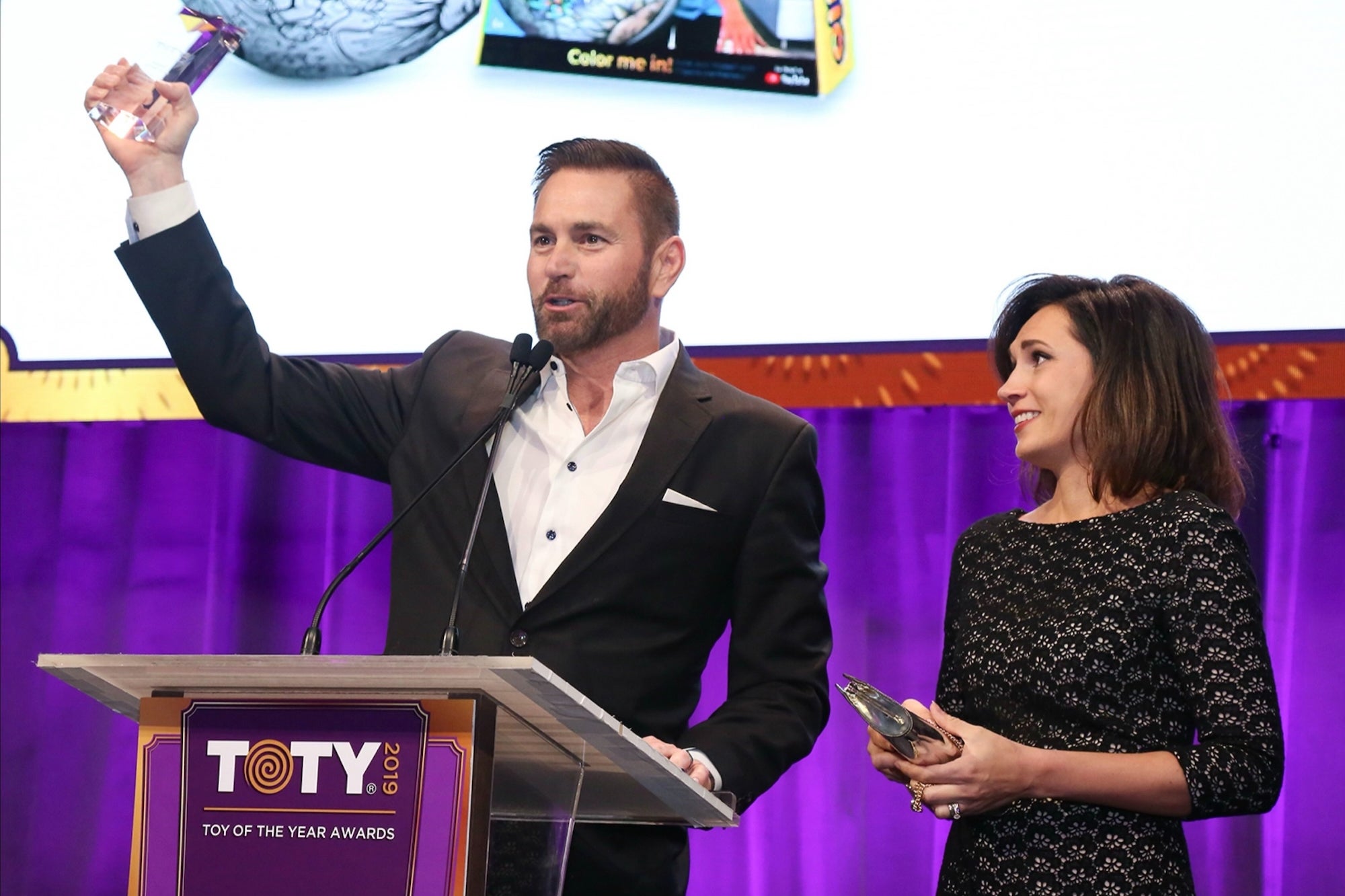Getting a “no thanks” on Shark Tank — twice! — might lead some people to think that they needed a new idea. But Joe Burke is not one of those people. He persisted with a kids’ toy idea that he developed at his kitchen table, and today, Ollyball has sold over 3 million units and has won multiple awards, including Toy of the Year.
Ollyball is an inflatable ball designed for “full-speed, full-force indoor play.” It weighs less than an ounce, so kids toss it around without fear of knocking over or breaking anything in the house.
On May 28 at 2 PM ET, Joe will join Entrepreneur for an online workshop to give a behind-the-scenes look at how he turned Ollyball into the all-time best-selling indoor play ball — and the strategies he used to do it without big investors or flashy ads.
This event is free for Entrepeneur+ subscribers. Sign up here to reserve your spot and have the opportunity to ask Joe your own questions live.
Not an Entrepreneur+ subscriber? Subscribe today for just $5.
In advance of the conversation, we spoke with Joe to get some insights about his product and his entrepreneurial journey.
What inspired you to create Ollyball?
My 9-year-old daughter was crying in the kitchen after breaking stuff in the house with a volleyball. I knew if we could invent a ball for parents to let their kids play with in the house, we would sell millions of them. It became an obsession through 100 prototypes, two U.S. utility patents and a Toy of the Year award before we ever went to mass market.
How did you test it out?
I made a ton of prototypes with different materials and sizes. I would take the kids to the Kids Club at 24-Hour Fitness and have them bring the prototypes with them. I’d watch to see if the kids were into it or not. When I brought an early version of the now-patented KrunchCor Construction Ball on a Saturday, the kids went bonkers and the manager had to take the ball away because they all fought over it. I knew then we were close to the answer.
Any other big moments that stand out to you about the early days?
When the hosts of the CBS Morning Show started drilling each other with Ollyballs live on national TV. For that moment, they were kids in a playground. Another key moment was an Instagram post from 2019 of a kid named Martin Vodicka and his father in Austria playing Ollyball together in their home. I realized a ball can change the world.
What has been your biggest challenge and how did you pivot to overcome it?
COVID and tariffs. Treated them the same: Go head-first and full-force into crisis and find an unfair competitive advantage. Our pivot was to take a reckless leap of faith. The other big challenge was financial — investing $150k of savings, growing on profits, and fending off predatory investors. The key pivot there was trusting two fellas I met doing non-profit/charitable service, a CPA and a patent attorney.
What advice would you give entrepreneurs looking for funding?
When you want capital, you won’t get it. When you don’t need capital, everyone will offer it — don’t take it. My best advice is to avoid surrendering equity and rejoice in learning every dimension within your business and brand. Get busy building your empire brick by bloody brick.
How do you suggest preparing for a pitch?
Anticipate a room full of a-holes asking a-hole questions. Out-research and have a true answer for every a-hole question. This forces reality.
What does the word “entrepreneur” mean to you?
“Survivor.” The films The Shawshank Redemption and There Will Be Blood illustrate both the apex and the dungeon of entrepreneurism.
What is something many aspiring business owners think they need that they really don’t?
Money. I started my first company on a card table and a metal chair at the end of a hallway that I traded out for work.
What is a book you always recommend?
Here are four:
- The Velveteen Rabbit by Margery Williams. Greatest book on authenticity in business.
- Henry IV by William Shakespeare. Specifically, Act I sc. II., which relates to understanding your guest/customer.
- Lean Startup by Eric Ries. I’m living it.
- Blink by Malcolm Gladwell. Best book on authentic marketing.
- Anatomy of Yes by Joseph G. Burke. That’s the book I wrote in 46 hours on a train. It was published by Matthew Kelly’s company and the foreword was written by the founder of Domino’s Pizza.
Is there a particular quote or saying that you use as personal motivation?
Yes, I have three of them:
- “Champions are made in the lonely hours.” A good friend, Kevin Karro, author of Rules of the Red Rubber Ball, handed me this pearl of wisdom.
- “A team is a group of people who trust each other.” It’s an unavoidable truth.
- “Put God at the center of everything you do.”
Getting a “no thanks” on Shark Tank — twice! — might lead some people to think that they needed a new idea. But Joe Burke is not one of those people. He persisted with a kids’ toy idea that he developed at his kitchen table, and today, Ollyball has sold over 3 million units and has won multiple awards, including Toy of the Year.
Ollyball is an inflatable ball designed for “full-speed, full-force indoor play.” It weighs less than an ounce, so kids toss it around without fear of knocking over or breaking anything in the house.
On May 28 at 2 PM ET, Joe will join Entrepreneur for an online workshop to give a behind-the-scenes look at how he turned Ollyball into the all-time best-selling indoor play ball — and the strategies he used to do it without big investors or flashy ads.
The rest of this article is locked.
Join Entrepreneur+ today for access.


